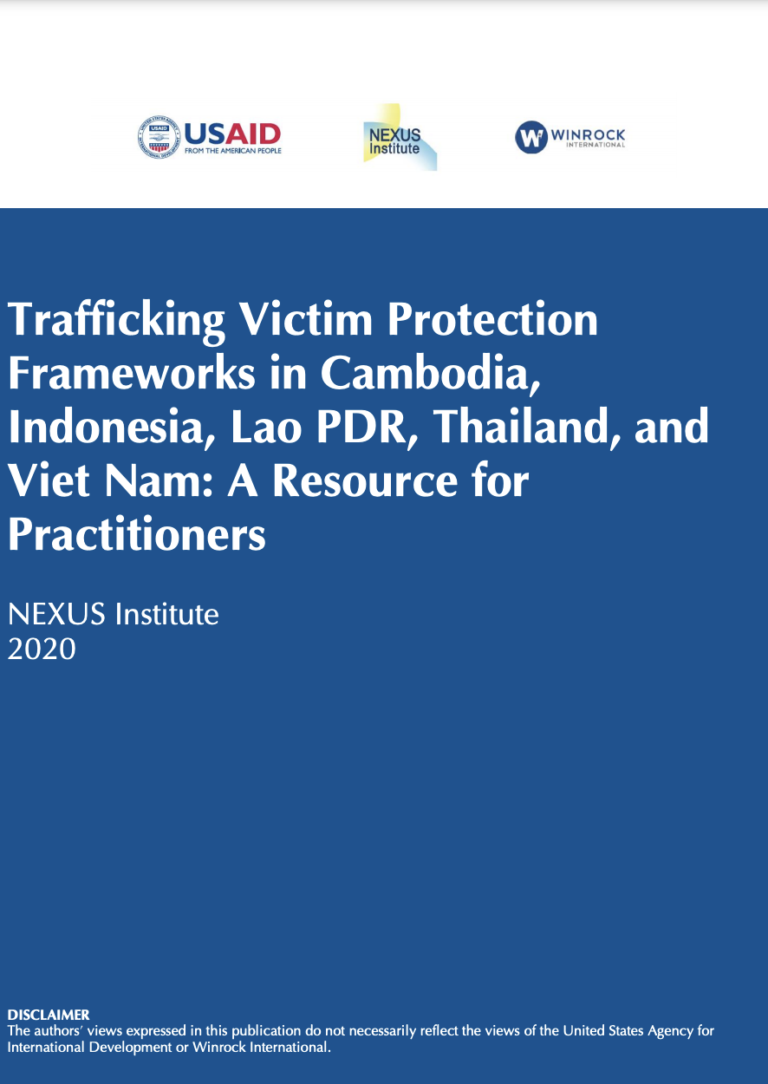This publication provides an overview of the legal and policy framework in place for the protection of trafficking victims in five countries in Southeast Asia (Cambodia, Indonesia, Lao PDR, Thailand, and Viet Nam), outlining the various instruments, procedures and materials that exist in each country. It offers practitioners step-by-step guidance on the process of victim identification, referral, and assistance in each country, including the various agencies and institutions responsible for this work. Each country section outlines and explains the following critical elements in a country’s protection response for trafficking victims: laws and policies on victim protection; procedures and guidance on victim identification and referral; assistance available to trafficking victims; and special considerations in identifying and assisting trafficked children.

